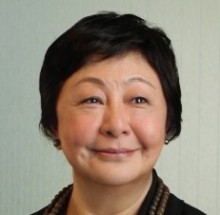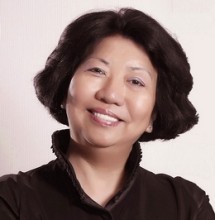Women on Boards 2019 Q1
Percentage of Women on Hang Seng Index (HSI) Boards
In the last 12 months, the representation of women on the boards of the 50 Hang Seng Index (HSI) listed companies has stagnated. As of 2 January 2019, just 13.9% of board positions were held by women, barely nudging up from 13.8% a year ago. Looking back over the last decade, there has been an increase of just 5% - and whilst the rate of change seemed to pick up pace between 2014-15 (9.6% to 11.1% over 12 months), this was not sustained and has declined in recent years.
Having a gender diverse board is not about optics, but about solidifying your business. A board made up of different, even conflicting, perspectives and life experiences encourages a culture of questioning and robust discussion. This will not only help to mitigate risks and strengthen governance but ensure a higher probability of business success, which is backed by a growing body of research. In these volatile and disruptive times, companies should demand a strong, diverse board that futureproofs their existence.
Companies with at least one female director
- 2019
- 2018
- 2017
- 2016
Companies with multiple female directors
- 2019
- 2018
- 2017
- 2016
Companies with female executive directors
- 2019
- 2018
- 2017
- 2016
Companies with female CEOs
- 2019
- 2018
- 2017
- 2016
Companies with all-male boards
- 2019
- 2018
- 2017
- 2016
With the gloomy headline numbers, are there any glimmers of hope? The percentage of companies with female executive directors is higher this year than it has ever been (38.0%). Executive directorships are an indicator of the female pipeline in a company and whether the company is creating a supportive environment for women to reach the top. Ten years ago, the percentage of companies with female executive directors was 31.0%, dipping as low as only 24.0% in 2013-2014 and climbing at a steady rate since then to reach 38.0%. In total, there are 25 female executive directors out of a total of 215 on the Hang Seng Index today. We also see progress in the number of female chairpersons of HSI listed companies. From a meagre one female chairperson from 2011 to 2018, this statistic has risen to three this year.
Of all 50 HSI companies, only one (Hang Seng Bank) has a female CEO, Louisa Cheang Wai-wan. This has disappointingly remained largely constant over the last decade, only rising to two female CEO’s in 2015 and 2016 with Mengniu Dairy was added to the HSI in 2014.
Women on Boards League Table: HSI
Most eventful
- % Women
- 23.1%
- Board Size
- 13
- No. of Women
- 3
- Stock Code
- 388
- Chairperson
- Cha Shih, Laura May Lung 史美倫
- Female Directors
- Cha Shih, Laura May Lung 史美倫
Fung, Anita Yuen Mei 馮婉眉
Leung Ko, Margaret May Yee 梁高美懿
- % Women
- 10.0%
- Board Size
- 10
- No. of Women
- 1
- Stock Code
- 2018
- Chairperson
- Koh, Boon Hwee 許文輝
- Female Directors
- Wu, Ingrid Chunyuan 吳春媛
- % Women
- 6.7%
- Board Size
- 15
- No. of Women
- 1
- Stock Code
- 2318
- Chairperson
- Ma, Mingzhe 馬明哲
- Female Directors
- Cai, Fangfang 蔡方方
- % Women
- 6.7%
- Board Size
- 15
- No. of Women
- 1
- Stock Code
- 151
- Chairperson
- Tsai, Eng Meng 蔡衍明
- Female Directors
- Lai, Hong Yee 黎康儀
Top 10
- % Women
- 38.5%
- Board Size
- 13
- No. of Women
- 5
- Stock Code
- 11
- Chairperson
- Ch'ien, Raymond Kuo Fung 錢果豐
- Female Directors
- Cheang, Louisa Wai Wan 鄭慧敏
Chiang, Lai Yuen 蔣麗苑
Kwan, Margaret Wing Han 關穎嫺
Lee, Irene Yun Lien 利蘊蓮
Legg, Sarah Catherine 李瑞霞
- % Women
- 36.4%
- Board Size
- 11
- No. of Women
- 4
- Stock Code
- 1177
- Chairperson
- Tse, Theresa Y Y 謝其潤
- Female Directors
- Cheng, Cheung Ling 鄭翔玲
Li, Mingqin 李名沁
Lu, Hong 魯紅
Tse, Theresa Y Y 謝其潤
- % Women
- 35.7%
- Board Size
- 14
- No. of Women
- 5
- Stock Code
- 5
- Chairperson
- Tucker, Mark Edward 杜嘉祺
- Female Directors
- Casey, Kathleen Louise 祈嘉蓮
Cha Shih, Laura May Lun 史美倫
Lee, Irene Yun Lien 利蘊蓮
Miller, Heidi 苗凱婷
van der Meer Mohr, Pauline 梅爾莫
- % Women
- 33.3%
- Board Size
- 12
- No. of Women
- 4
- Stock Code
- 823
- Chairperson
- Allen, Nicholas Charles 聶雅倫
- Female Directors
- Tan, May Siew Boi 陳秀梅
Tan, Poh Lee 陳寶莉
Tse, Nancy Sau Ling 謝秀玲
Young, Elaine Carole
- % Women
- 30.0%
- Board Size
- 10
- No. of Women
- 3
- Stock Code
- 1088
- Chairperson
- Ling, Wen 凌文
- Female Directors
- Jiang, Bo 姜波
Tam, Maria Wai Chu 譚惠珠
Zhong, Christina Yingjie 鍾穎潔
- % Women
- 25.0%
- Board Size
- 12
- No. of Women
- 3
- Stock Code
- 3988
- Chairperson
- Chen, Siqing 陳四清
- Female Directors
- Chao, Angela 趙安吉
Wang, Xiaoya 汪小亞
Xiao, Lihong 肖立紅
- % Women
- 25.0%
- Board Size
- 20
- No. of Women
- 5
- Stock Code
- 66
- Chairperson
- Ma, Frederick Si Hang 馬時亨
- Female Directors
- Chan Wong, Pamela Shui 陳黃穗
Chan Yuen, Dorothy Tak Fai 陳阮德徽
Chan, Mable 陳美寶
Lee, Rose Wai Mun 李慧敏
Li Li, Lucia Ka Lai 李李嘉麗
- % Women
- 23.5%
- Board Size
- 17
- No. of Women
- 4
- Stock Code
- 1038
- Chairperson
- Li, Victor Tzar Kuoi 李澤鉅
- Female Directors
- Chen, Tsien Hua 陳建華
Kwok Lee, Eva 郭李綺華
Lee Wong, Angelina Pui Ling 李王佩玲
Sng, Sow Mei 潘秀美
- % Women
- 23.1%
- Board Size
- 13
- No. of Women
- 3
- Stock Code
- 1113
- Chairperson
- Li, Victor Tzar Kuoi 李澤鉅
- Female Directors
- Hung, Katherine Siu Lin 洪小蓮
Pau, Ezra Yee Wan 鮑綺雲
Woo, Grace Chia Ching 吳佳慶
- % Women
- 23.1%
- Board Size
- 13
- No. of Women
- 3
- Stock Code
- 388
- Chairperson
- Cha Shih, Laura May Lung 史美倫
- Female Directors
- Cha Shih, Laura May Lung 史美倫
Fung, Anita Yuen Mei 馮婉眉
Leung Ko, Margaret May Yee 梁高美懿
The League Table provides a high-level snapshot of the overall ranking of company performance – as assessed by the percentage of women on their boards. Over the last twelve months, we have seen some dramatic movement among the top 50, with Want Want China Holdings Limited climbing 12 places to 38th position and Hong Kong Exchanges and Clearing climbing 10 places to 9th position, with the notable appointment of a female chairperson, Laura Cha. Some sharp downward moves were also observed in 2019: AAC Technologies Holdings, for example, slipped 22 places to be ranked 28th and Ping An Insurance dropped 12 places to joint 38th position. In both of these companies, a female director left the board, and several men were appointed. Other than the enlightened companies that have ranked at the top of our League Table for years, there appears to be a lack of real, sustained commitment to gender diverse boards by many companies.
Companies which have never had female directors
Disappointingly, 2019 marks a missed target for Hong Kong in terms of eradicating all-male boards in Hong Kong. The 30% Club Hong Kong set the aspirational goal, hoping to see positive change by the end of 2018. Unfortunately, there remains ten companies with no women on their boards, the same level as a year ago. Furthermore, five of these companies – CNOOC, Sunny Optical Technology, Tencent Holdings, Towngas and WH Group – have never had female representation on their boards.
On a more positive note, we celebrate the fact that Want Want China Holdings appointed a female director in 2018 and in so doing, has not only removed itself from the all-male boards category, but also climbed twelve places to 38th position in the League Table. This favourable outcome was unfortunately offset by the addition of CSPC Pharmaceutical to the HSI in June 2018, and with no women on its board, kept the overall level of all-male boards at ten.
Over the last twelve months, only six new female directors have been appointed to Hang Seng Index companies – the lowest since 2009, both in actual and percentage (6.8%) terms. During this same period, 82 men were appointed to HSI boards. This downward trend in female appointments is in sharp contrast to the previous year, when 17 female appointments were made, representing 18.7%, the highest rate ever.
-

YANG Huiyan
Co-ChairCountry Garden Holdings -

-

-

-

-

LAI Hong Yee
EDWant Want China Holdings
Of the six female directors appointed in 2019, only four were new appointments (the remaining two were role changes: Leonie Ki from Executive Director to Non-Executive Director at New World Development; and Yang Huiyan from Country Garden Holdings, who was promoted from Vice-Chair to Co-Chair). Only one woman (Lai Hong Yee of Want Want China Holdings) was a brand-new appointment as she has not previously been appointed to any other Hong Kong listed corporate boards. This finding indicates that companies are reluctant to appoint women who have not had previous board experience, which further limits the expansion of the talent pipeline of senior women who could be considered for board roles.
It is important to ensure that the pipeline of female talent is not only nurtured from within (with companies supporting the advancement of women to senior positions), but also tapped when it comes to nominating board candidates. Companies should ensure that their pool of potential board members is meritocratic and diverse. Broad perspectives based on relevant experience are invaluable around the boardroom table in these VUCA times. The 30% Club Hong Kong, in partnership with The Women’s Foundation, has established the Boardroom series for Women Leaders which aims to tackle this perceived lack of female talent at the board level and offer opportunities for women to ensure their path to the boardroom is not hindered by a gendered disadvantage.

Norway

United Kingdom

Australia

Canada

United States

Malaysia

New Zealand

Singapore

India

Hong Kong

Japan
There have been some small victories for countries around the globe. Most notably, Singapore and India have overtaken Hong Kong in the rankings for the first time, reporting 15.2% (Singapore) and 14.0% (India) women on their boards. Regionally, Malaysia reports the highest numbers, with 23.2% recorded. Both India and Malaysia have government quotas in place which may go some way to explaining their acceleration in recent years. Singapore, via the government-backed Council for Board Diversity*, has enacted a multi-pronged campaign involving naming-and-shaming, engaging with board decision makers, maintaining a list of female candidates, and showcasing through data the impact on corporate performance. Inspired by this galvanised action, vocal support from male champions at the board level has increased dramatically. All of these factors have led to rapid progress in Singapore, with female board appointments reaching a record high of 24.0% during 2018.
- Previously named ‘Diversity Action Committee’ and starting in January 2019, its scope has expanded to also include statutory boards and non-profit organisations.
A concerted and collective effort is required by companies, governments, regulators, investors, and other stakeholders to ensure that women are given equal opportunity to participate and serve in leadership roles in the boardroom and executive suite. This begins with a commitment to change and a bold admission from Hong Kong companies that gender diversity is good for business, and ultimately good for Hong Kong.
Our full recommendations for increasing women’s representation on Hong Kong boards can be found in our Call to Action
